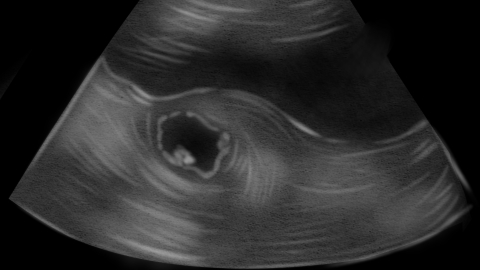What are the main causes of fetal arrest at seven weeks?
Generally, the main causes of embryonic arrest at seven weeks may include genetic factors, unhealthy lifestyle habits, insufficient luteal function, intrauterine infection, and abnormal uterine anatomy. Symptomatic treatments such as general therapy, medication, or surgical intervention may be required. If physical discomfort occurs, it is recommended to seek medical examination and treatment at a hospital as soon as possible. A detailed analysis is as follows:

1. Genetic factors
Embryonic chromosomal abnormalities are one of the primary causes of early pregnancy loss. These abnormalities may originate from either the sperm or the egg, forming an abnormal zygote during fertilization. If there is a family history of chromosomal abnormalities, the risk of embryonic arrest may increase. It is recommended that both partners undergo chromosomal testing at a hospital before conception to determine whether their genetic makeup is suitable for pregnancy.
2. Unhealthy lifestyle habits
Unhealthy habits such as smoking, excessive coffee consumption, and alcohol abuse during pregnancy may affect normal embryonic development and may be accompanied by symptoms such as physical discomfort and fatigue in the pregnant woman. It is recommended that pregnant women rest regularly after conception and primarily consume bland foods, such as millet porridge and vegetable soup, while avoiding stimulant beverages. Additionally, unhealthy habits should be eliminated to maintain a healthy lifestyle.
3. Insufficient luteal function
Inadequate luteal function can affect the cyclical changes of the endometrium, reducing the chances of embryonic implantation or affecting the hormonal levels required for embryonic development. This condition is often accompanied by symptoms such as menstrual irregularities, mood swings, and fatigue. Treatment typically involves following medical advice to use medications such as progesterone capsules, dydrogesterone tablets, and bromocriptine mesylate tablets.
4. Intrauterine infection
Infections in the uterus caused by bacteria, viruses, or parasites can alter the intrauterine environment, affecting embryonic development or directly damaging embryonic tissue. Symptoms often include fever, lower abdominal pain, and abnormal vaginal discharge. It is recommended to follow medical guidance for treatment using medications such as penicillin V potassium tablets, azithromycin tablets, or erythromycin tablets to ensure a stable intrauterine environment.
5. Abnormal uterine anatomy
Congenital uterine malformations or changes in uterine morphology due to acquired factors such as surgery or infection can affect embryonic implantation and development, potentially leading to recurrent miscarriage, preterm birth, or fetal growth restriction. Patients should follow medical advice to correct anatomical abnormalities through procedures such as hysteroscopic surgery or uterine corrective surgery based on individual conditions.
Pregnant women should undergo regular prenatal checkups during pregnancy to closely monitor their physical condition and fetal development.
References
[1] Zhang Yuzhou, Feng Yinglin, Liu Dan, et al. The diagnostic value of non-invasive prenatal DNA testing for fetal chromosomal aneuploidies[J]. Chinese Journal of Practical Diagnosis and Therapy, 2024, 38(04): 407-410.
[2] Xu Shuqi. Preconception checkups can ensure a worry-free early pregnancy[J]. Everyone's Health, 2022, (25): 46.





